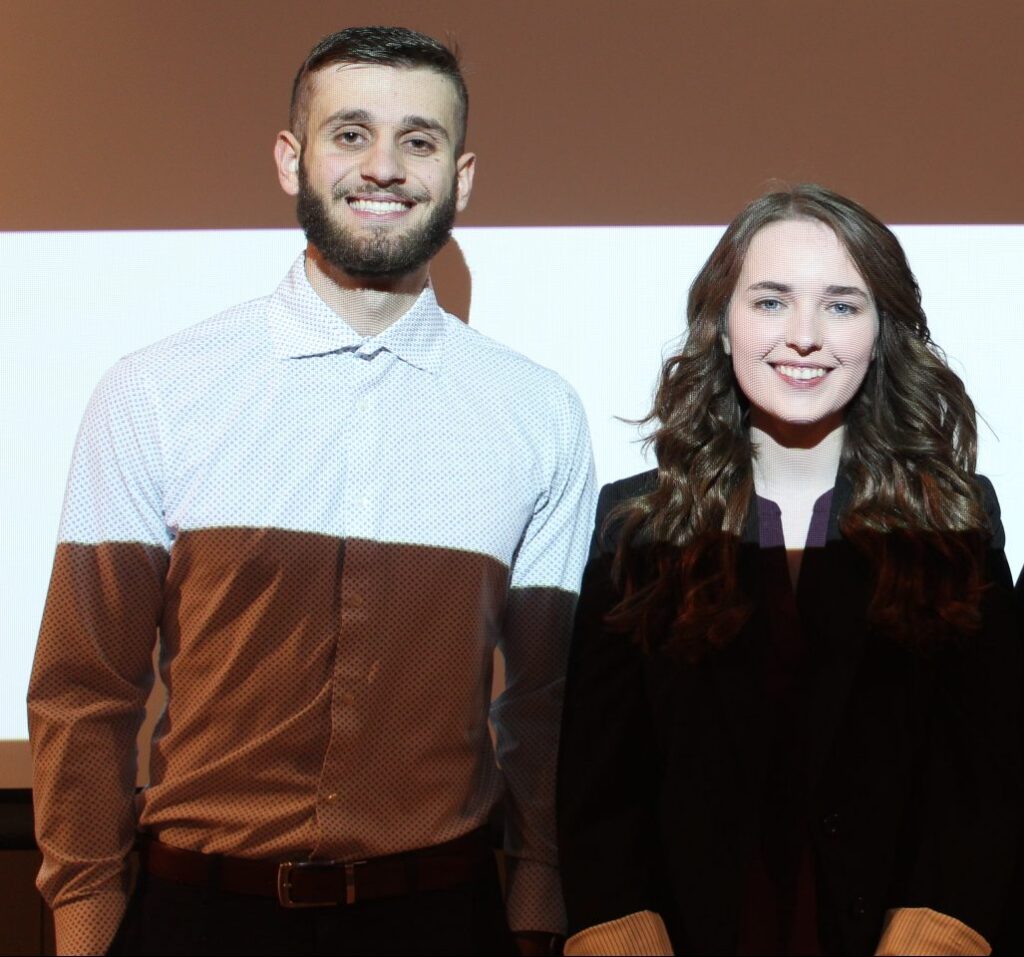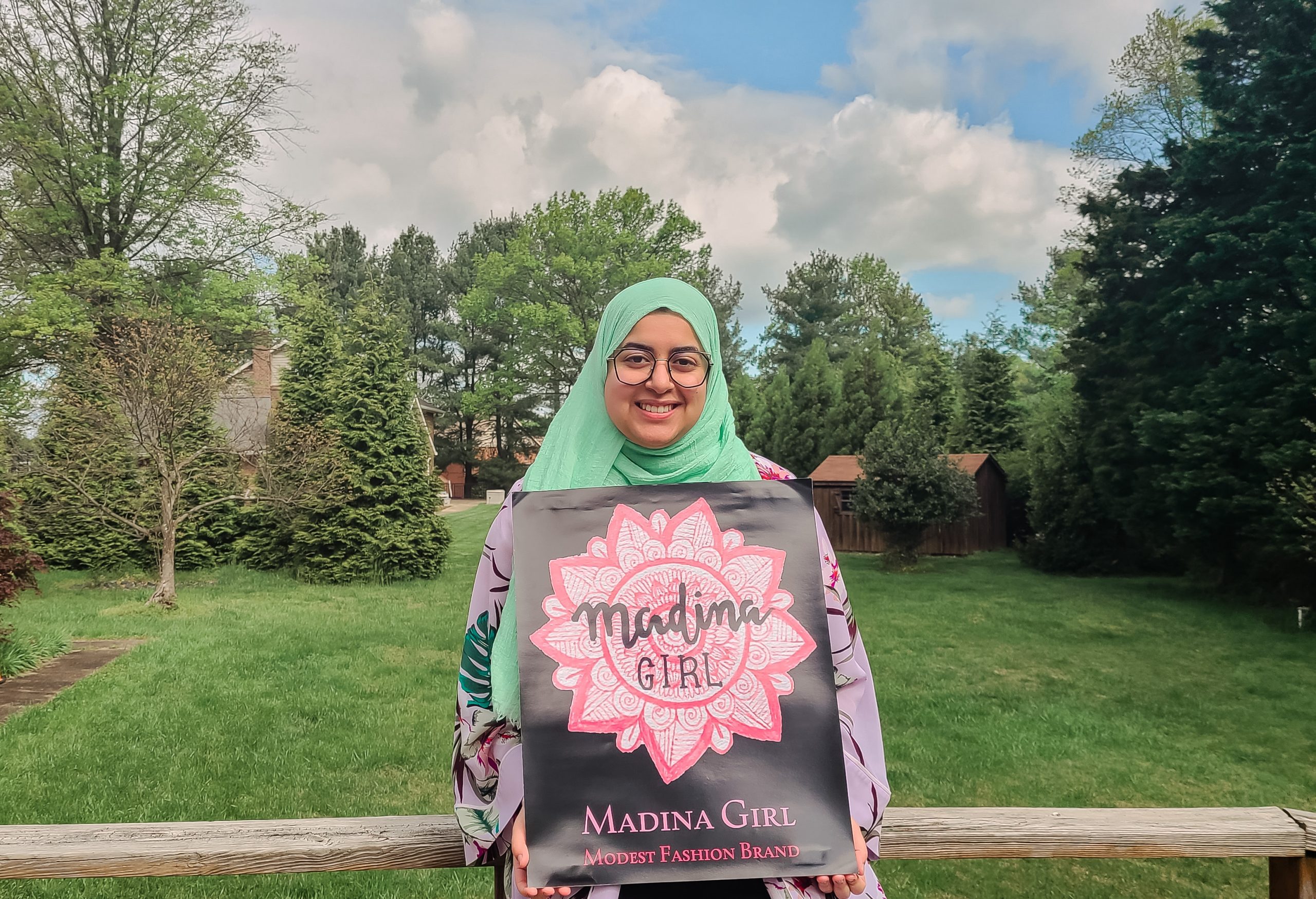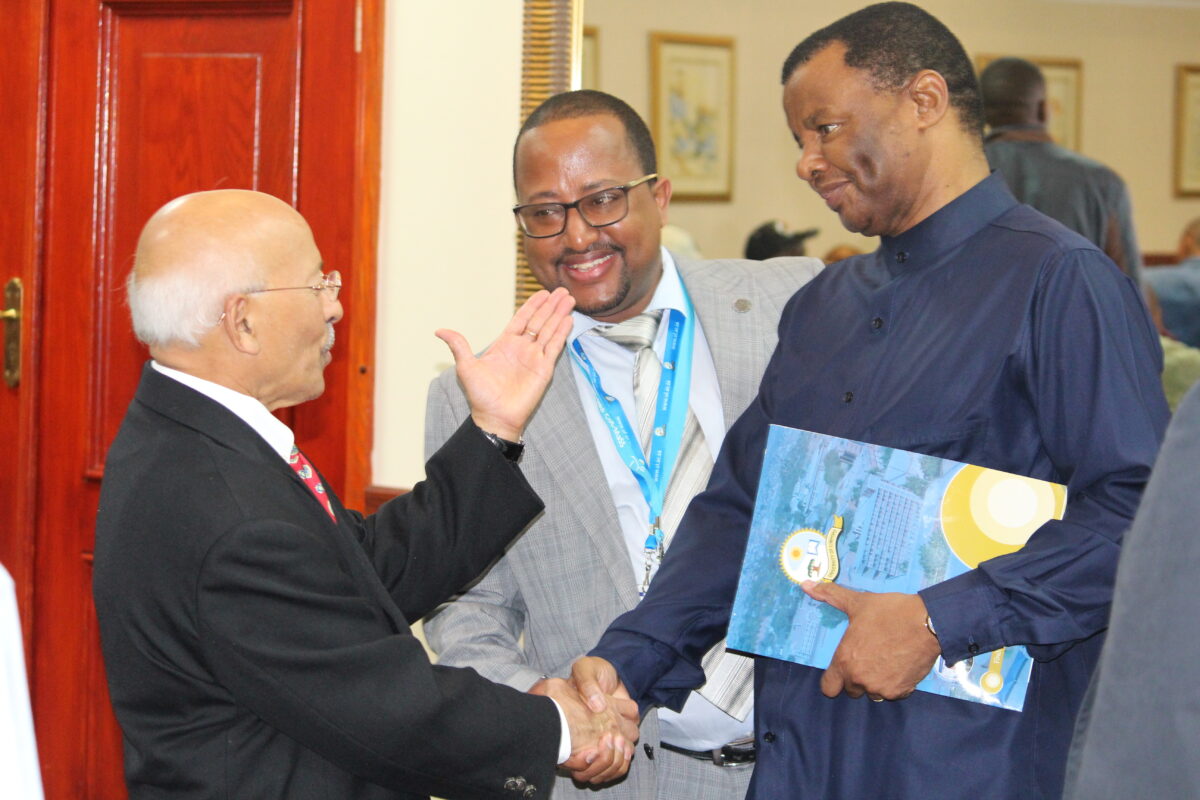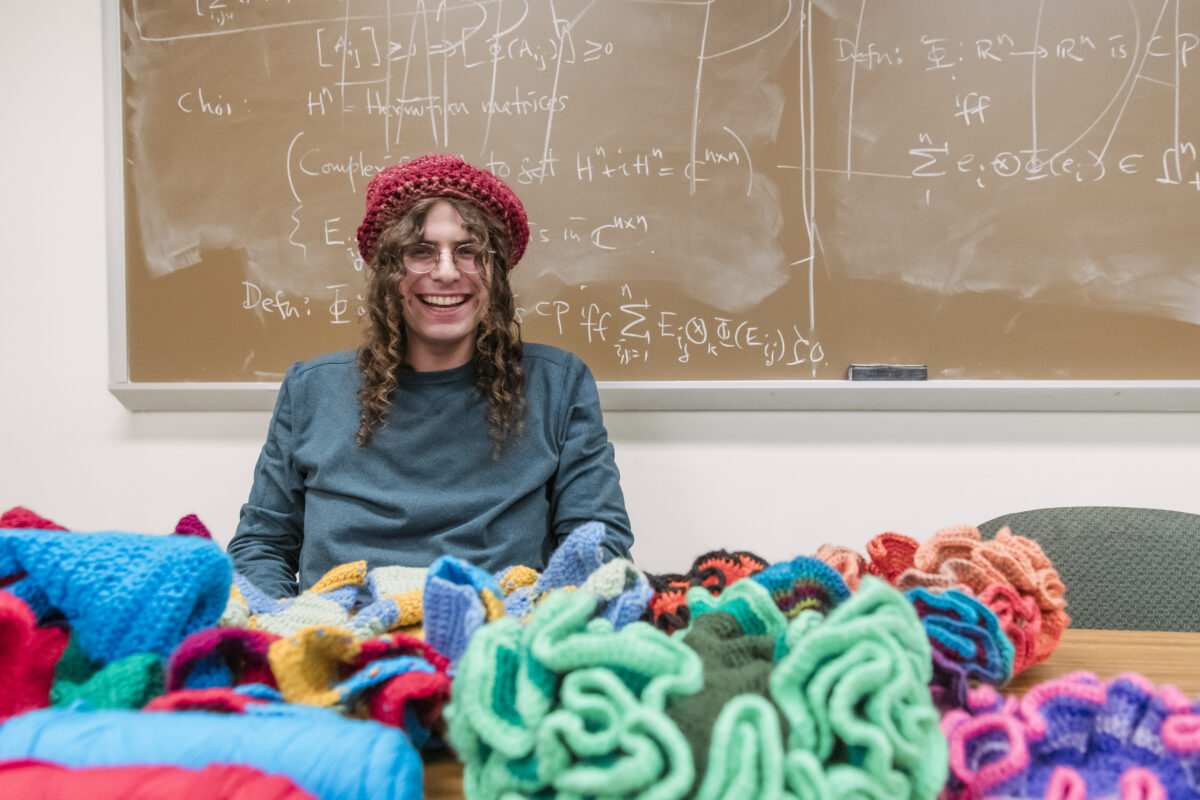Four UMBC student groups vied for the top prize in the finals of this year’s Cangialosi Business Innovation Competition (CBIC), held entirely online for the first time on April 30. Their projects ranged across industries, from fashion to artificial intelligence.
A pair of judges from the Baltimore Angels selected the finalists from among nearly 20 ideas submitted earlier in the semester. In advance of the event, each team prerecorded a seven-minute-long pitch video. They then participated in a live online Q&A with the judges.
The first prize winner was a familiar team, which first drew attention after winning the Alex. Brown Center for Entrepreneurship’s Idea Competition in the fall. After that early recognition for their project concept, they grew it into a prototype that once again captured the judges’ imaginations.
Helping kids communicate
The $3,000 first prize went to Octotalk, presented by Emma Neubert ‘21 biochemistry, and Scott Hart ‘22, visual arts. Neubert and Hart developed an interactive tool in the form of a plush octopus that children who are nonverbal can use to communicate their needs, thoughts, and feelings. Neubert hopes Octotalk will help children interact with people in a simple, comforting, and effective way.
Holding a prototype in her pitch video, Neubert explained Octotalk’s eight buttons, one on each tentacle. There are buttons for “yes,” “no,” and “I don’t know” responses. The other five buttons can be programmed through an app. The system is built in the Arduino platform. It is easily customizable, which allows teachers to change the options as a child’s needs and abilities change and grow, Neubert says.
The Octotalk team thinks this fills an important gap in the market because there is no similar communication device that is soft, friendly, and affordable. Most assistive communication devices for children are expensive electronics, like tablets, Neubert explains.
Next, Hart and Neubert hope to work with child development experts to optimize Octotalk. “We hope to have psychologists and counselors working with us to bring the greatest possible interactive experiences to the children using them, before moving them to homes and other caregiving situations,” explains Hart.
Connecting communities with healthy food
Second-place winners Laura Holland ‘22, computer science, and Niky Sicilia ‘21, business technology administration, joined forces after presenting individual projects at UMBC’s Idea Competition in fall 2019. Together, they developed Greater Plate, an app that helps people find healthier and more affordable meal alternatives to fast food in their local areas.

Greater Plate helps address food insecurity in Baltimore City, where many low-income people do not have a grocery store within a quarter mile of their home, and don’t have transportation to access a store, says Holland. Connecting people with nourishing food options is essential to improving community health, she explains.
Through Greater Plate, local businesses will offer reduced price meals to app users, who can then select meals that fall within a set price range. Users will also be able to pre-order meals and purchase meal plans, which could offer additional cost savings. “For all of the meal plans, the cost per meal will be roughly equivalent to the cost of an average fast food meal,” explains Holland. “The meals will be as convenient as fast food, but they will be better quality.”
“With Greater Plate, we also want to lead the way in connecting people in Baltimore City with better ways to support and engage in local business,” Holland says.
To ensure vendors have a steady stream of income, they’ll have the option to sell market-rate priced meals in addition to reduced-price meal options. This will also help meet the needs of a range of users, whether they are driven primarily by convenience, supporting local businesses, eating healthy, or accessing affordable meals. They hope to work with other local groups already working on local dining and food access issues.
Affordable modest fashion
Third-place winner Noha Darwish ‘20, psychology, pitched Madina Girl, a modest fashion company. The concept is inspired by her experience as a Muslim woman who has trouble finding clothing that is stylish, comfortable, modest, and affordable.
“Growing up, I always expressed myself through fashion but I always felt limited because there weren’t options for me on the market,” says Darwish. “I felt invisible in the eye of mainstream fashion, so I started to create clothes for myself, and people loved my designs, which was how Madina Girl was born.”
Darwish calls the challenge of finding clothes that meet her needs “the compensating game.” For every clothing item bought, she will often have to purchase another item to pair it with, to reach the level of modesty she’s seeking. “Madina Girl was created so that modestly-dressing women do not have to choose between modesty and style,” explains Darwish
In her pitch for Madina Girl, Darwish noted that the modest fashion market is expected to reach $300 billion in 2022. Many of the companies already in this space, she suggests, don’t necessarily meet the needs of Muslim women in the United States. “At Madina Girl, we pride ourselves on our American designs, that are created for the American girl by the American girl.”
“It brings me so much fulfillment to know that my team and I are creating something that people really need and that brings them joy,” she says.
Identifying pain points in research
Akshay Peshave, M.S. ‘14, Ph.D. ‘20, computer science, earned fourth place for Karotene, a platform that connects researchers with information and data they need to do their work. The project is inspired by his Ph.D. research, which focuses on how machines can be taught to gather knowledge like people. Peshave explained that researchers often face challenges when searching for information to support their work. “Every time I have an idea in my head of what I am looking for, I need to translate it into a language that the search engine understands,” Peshave says. Then, once those results appear, he has to manually filter the results based on his needs.
To alleviate some of this time and frustration, Peshave developed Karotene. This tool combines artificial intelligence with natural language queries to streamline the process of searching for information, and it can connect with any textual search engine Pershave will use the CBIC funding to help support cloud costs for a pilot of Karotene.
“It was very important that we continue to offer this competition this year even though it could not be held in person,” says Vivian Armor ‘73, American Studies, director of the Alex. Brown Center for Entrepreneurship. “These student entrepreneurs are serious about their business ideas and the competition provided both seed funding to help them launch and also valuable feedback from experienced judges. Going forward, the Alex. Brown Center will continue to provide ongoing support to assist them in making their dreams a reality.”
Banner image: Noha Darwish with the Madina Girl logo. Photo courtesy of Darwish.
Tags: AlexBrownCenter, ChemBiochem, CNMS, COEIT, CSEE, IS, Psychology, VisualArts




